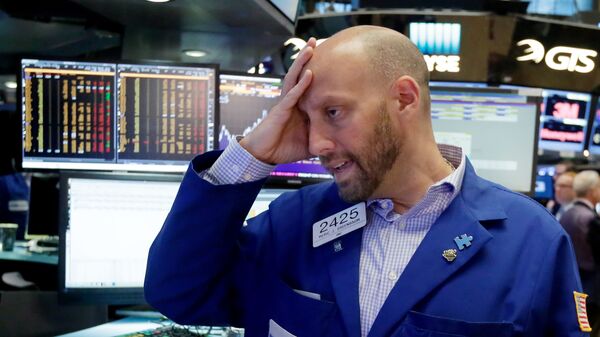"What we're seeing today is a slight uptick, which in no way made up for the significant losses over the past few days," said Daniel Sankey, a financial policy analyst, during an interview with Radio Sputnik's Loud & Clear on Tuesday.
The Dow Jones industrial average picked up 567 points, or 2.33 percent, Tuesday after Monday's 4.6 percent fall. Sankey observed that some investors may be trying to buy assets at relatively discounted prices, betting that the bull market will continue. "Some investors are trying to take advantage of a temporary, or potentially temporary, depression in prices… they're trying to take advantage of this dip and buy some things on the cheap," the analyst said.
Still, due to the Federal Reserve's easy money policy, the elevated stock market valuations since 2010 are "disconnected from the real economy — people's wages, job security, the benefits they're receiving," Sankey pointed out.
Further, quantitative easing may have improved stock market conditions in recent years, but it cannot alone drive productivity, "our general ability to make commodities that people want and will pay for," the analyst said.
One tool economists use for measuring whether stocks are under or overvalued in terms of the historical record was developed by Yale economist Robert Shiller: the cyclically adjusted price-to-earnings ratio, also known as CAPE or the Shiller P/E. Across history, the only time CAPE has been higher than it is now was in 2000, around the time of the Dot Com bubble, economist Steve Keen told Sputnik.
On Tuesday, billionaire investor Carl Icahn warned that investors are exposed to "way too many derivatives" products and Monday's plunge was merely "rumblings of an earthquake."




